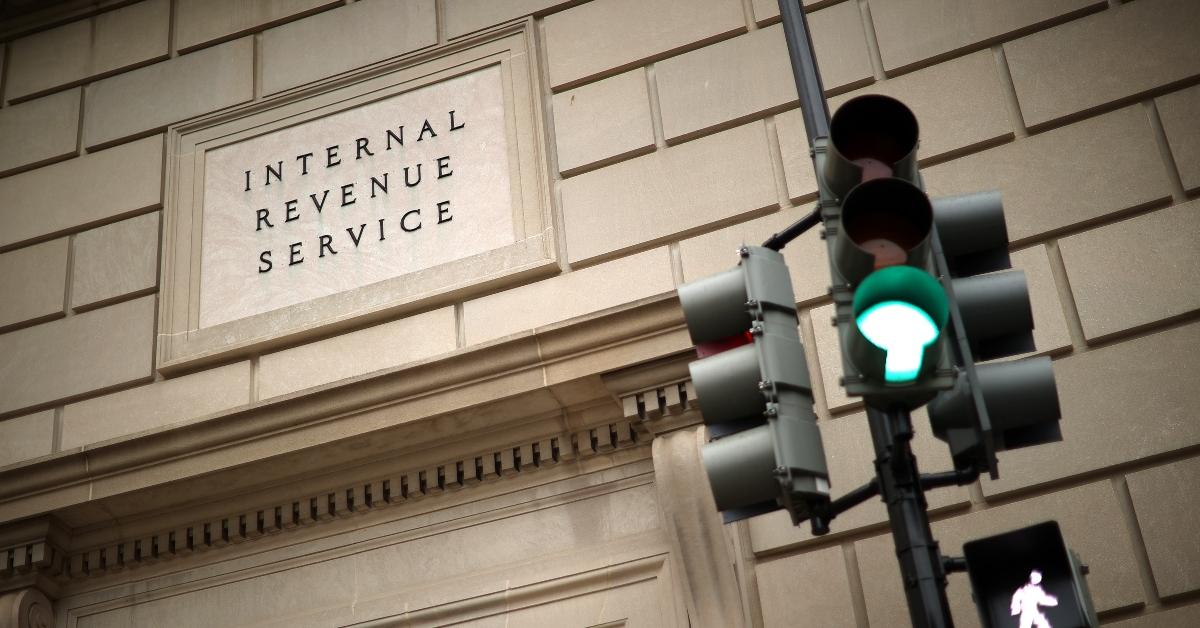Taxes on Lottery Winnings—Breaking Down the Details
If you have a lottery ticket, you’re probably already thinking of ways you can spend the winnings. Have you considered what the taxes would be?
May 19 2021, Published 3:52 p.m. ET

On May 21, some lucky person could win over a half-million dollars in the Mega Millions lottery. As exciting as that sounds, is there more to it than just getting a big check?
If you bought a lottery ticket, you’re probably already thinking of ways you can spend the winnings. But have you considered what the taxes would be for the lottery windfall?

The lucky winner, if there is one, has two options on how to receive their winnings—in one lump sum or through annuity payments spread out over a period of time. Your decision could mean a difference in the taxes you pay to the IRS.
The IRS considers lottery winnings and other gambling winnings as ordinary income and, as with all income, they want a cut of it.
Depending on what state you live in, your state might also want to take a piece of the pie. California, New Hampshire, and Tennessee don’t include lottery winnings as taxable income. States that don’t have income taxes include Alaska, Florida, Nevada, South Dakota, Texas, Washington, and Wyoming.
But no matter what state you live in, your lottery winnings will still be subject to federal income taxes. If you win $600 or more, the lottery agency will give you a Form W-2G to file with your federal income tax return.
They will also send the form to the IRS if they withhold federal income tax from your winnings. Lottery agencies are usually required to withhold 24 percent from winnings of $5,000 or more.
The breakdown of taxes looks different depending on how you decide to receive your winnings.
Taxes if you take a lottery lump sum
When you decide to take your lottery winnings in a lump-sum payment, you are responsible for paying taxes on the total amount within the year that you receive it.
The percentage of tax you must pay depends on what tax bracket your income falls into. A lump-sum payment will add a considerable amount to your income for the year you win it, but not the following year.

For example, a single person who makes an annual salary of $40,000 and then wins $1 million in the lottery will earn a salary for that year of $1.04 million. That would put them in the highest tax bracket, so any income over $523,601 is taxed at 37 percent.
Their income would also be taxed in the lower tax brackets. The tax calculation for 2021 looks like this:
- 10 percent on income up to $9,950 = $995
- 12 percent on the next $30,575 = $3,669
- 22 percent on the next $46,000 = $10,120
- 24 percent on the next $78,000 = $18,852
- 32 percent on the next $44,500 = $14,240
- 35 percent on the next $314,175 = $109,961
- 37 percent on the last $516,399 = $191,067
Added up, your total federal income tax obligation for the year would be $348,904.
Taxes if you take annuity payments
If you decide to take your lottery winnings in annuity payments spread over a certain number of years, you will be in a lower tax bracket. So, the taxes will be less the first year you receive the payments. Over time, the amount of taxes paid is close to the amount for the lump-sum payment.
For example, looking at the same scenario of a single person with a $40,000 income winning $1 million, this time, the winnings are split into 30 annual payments of about $33,333.
Therefore, your taxable income each year would be $73,333. Taxes for each year would be calculated as follows:
- 10 percent on income up to $9,950 = $995
- 12 percent on the next $30,575 = $3,669
- 22 percent on the remaining $32,808 = $7,218
So, your total annual income tax due is $11,882.
If you were to add these payments up over 30 years, you would end up paying a grand total of about $356,460 in taxes, which is about $7,556 higher than the taxes you would pay with a lump-sum payout.

Deductions can lower your tax bill.
Making deductions from your adjusted gross income can help reduce the amount of money you send to the IRS. For example, contributing to a qualified tax-exempt 501C3 charitable organization can be deducted from your taxable income.
So, if you win $100,000 in the lottery and give $20,000 to Easter Seals, then your taxable income from the lottery winnings would be $80,000.
Cash donations are limited to 60 percent of your adjusted gross income.
